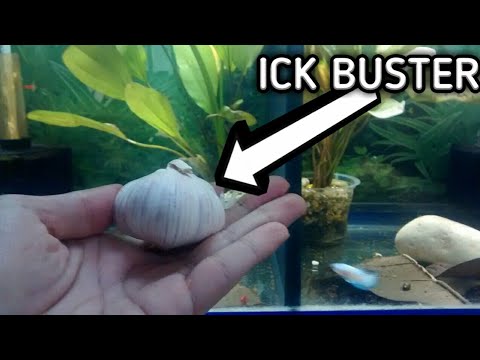Will Epsom Salt Kill Betta Fish
Epsom salt is a popular home remedy for a variety of ailments, but can it be used to treat betta fish? Many fish owners have wondered whether epsom salt has the potential to harm or even kill their beloved betta fish. In this article, we will explore the effects of epsom salt on betta fish and whether it is safe to use as a treatment option.
Epsom salt, also known as magnesium sulfate, is commonly used for its therapeutic benefits in humans and animals. It is often praised for its ability to reduce inflammation and promote healing. However, when it comes to betta fish, the use of epsom salt is a topic of debate among fish enthusiasts. While some believe that it can be used to treat certain health issues, others caution against its usage. So, let’s dive deeper into this topic and address some of the common concerns.
What is Epsom Salt?
Epsom salt is a naturally occurring compound composed of magnesium, sulfur, and oxygen. It gets its name from the town of Epsom in England, where the salt was first discovered in mineral springs. It is readily available in most pharmacies and is often used as a component in bath salts, as well as a remedy for various health conditions.
Using Epsom Salt for Betta Fish
The Benefits of Epsom Salt for Betta Fish
Proponents of using epsom salt for betta fish argue that it can provide a range of benefits, including:
1. Relieving Constipation: Epsom salt is believed to have a laxative effect on betta fish, making it an attractive option for treating constipation.
2. Reducing Swelling: Epsom salt may help reduce inflammation and swelling in betta fish suffering from conditions like dropsy, popeye, or swim bladder disorder.
The Risks of Epsom Salt for Betta Fish
On the other hand, there are concerns about the potential risks associated with using epsom salt for betta fish, including:
1. Harm to the Gills: Betta fish have sensitive gills, and exposure to high concentrations of epsom salt can potentially damage their respiratory system.
2. Altered pH Levels: Epsom salt has the potential to alter the pH levels of the water, which could lead to stress and negatively impact the overall health of betta fish.
When to Use Epsom Salt for Betta Fish
If you are considering using epsom salt for your betta fish, it is crucial to do so under the guidance of a veterinarian or experienced fish hobbyist. Epsom salt should only be used as a treatment option for specific health issues. Here are some situations where it may be warranted:
1. Constipation: If your betta fish is displaying signs of constipation, such as bloating or inactivity, and other measures like dietary adjustments or increased water temperature have not improved the situation, epsom salt may be considered as a potential remedy.
2. Swim Bladder Disorder: Betta fish with swim bladder disorder may exhibit symptoms like floating or sinking erratically. In some cases, epsom salt baths can be used as a temporary relief measure, but it is essential to address the underlying causes of the disorder.
How to Use Epsom Salt for Betta Fish
If you have consulted with a professional and have decided to use epsom salt for your betta fish, it is crucial to follow the recommended dosage and instructions. Here’s a general guideline on how to use epsom salt for betta fish:
1. Quarantine Tank: It is advisable to set up a separate quarantine tank for treating your betta fish with epsom salt. This will prevent any potential contamination of the main tank and ensure a controlled environment for treatment.
2. Proper Dosage: The dosage of epsom salt will depend on the size of the tank and the condition being treated. It is important to measure the right amount of salt to avoid over-dosing, which can be harmful to your betta fish.
3. Gradual Introduction: When adding epsom salt to the tank, it is recommended to dissolve it in water first before gradually introducing it to the tank. Sudden exposure to high concentrations of salt can be stressful for betta fish.
4. Monitoring and Observation: Keep a close eye on your betta fish throughout the treatment process. If you notice any adverse reactions or worsening of symptoms, it is essential to discontinue the use of epsom salt and consult with a professional.
Frequently Asked Questions
1.Is Epsom salt safe for betta fish?
While epsom salt can be used as a treatment option for certain health issues in betta fish, it should only be done under the guidance of a professional or experienced fish hobbyist. Improper use or dosage can have harmful effects on betta fish.
2.Can epsom salt kill betta fish?
In high concentrations, epsom salt can potentially harm betta fish, particularly their respiratory system. It is important to follow the recommended dosage and instructions when using epsom salt for betta fish.
3.What are the alternatives to epsom salt for treating betta fish?
There are alternative treatment options available for various health issues in betta fish. Consulting with a veterinarian or knowledgeable fish hobbyist can help guide you towards the most appropriate treatment options for your betta fish.
Final Thoughts
While epsom salt can provide some benefits for betta fish, it is crucial to approach its usage with caution. Consulting with a professional or experienced fish hobbyist is highly recommended to ensure the well-being and safety of your betta fish. Additionally, it is essential to consider alternative treatment options and address the underlying causes of any health issues your betta fish may be experiencing.
Remember, the health and happiness of your betta fish should always be your top priority. Prioritize their well-being by providing them with a clean and stress-free environment, a balanced diet, and seeking professional advice when needed. By doing so, you can help your betta fish thrive and enjoy a long and happy life.






